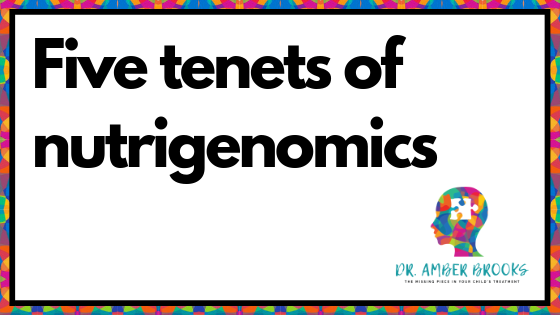What the MTHFR?
- Dr. Amber Brooks

- Jan 11, 2019
- 2 min read
Updated: Jul 12, 2019
MTHFR stands for methylenetetrahydrofolate reductase, an enzyme that is responsible for the process of methylation in every cell in your body. The “Methylation Pathway” main job is to process folic acid/folate into something the body can use.
In addition, these pathways are responsible for processing chemicals, hormones, building the immune system, producing energy and maintaining cells. MTHFR is a common genetic variant, around 40% of the population has 1 copy. This mutation causes this key enzyme in the body to function at a lower than normal rate. This can lead to a variety of medical problems.
Although there are over fifty known MTHFR variants, the two primary ones are called C677T and A1298. Your doctor can order a blood test to determine if you have these genetic variants.
What’s the big deal?
When people with an MTHFR genetic mutation are exposed to toxins (chemicals, food, poor air quality, vaccines, medications, etc), they have a harder time getting rid of them, which can cause some very serious illness.
Glutathione is the body’s primary antioxidant and detoxifier. One of the ways the MTHFR gene mutation can make you susceptible to illness is by lowering your ability to make glutathione. People with MTHFR anomalies usually have low glutathione, which makes them more susceptible to stress and less tolerant to toxic exposures.
This is particularly important when evaluating children and their developmental milestones, as these poor detoxification issues can cause life-changing effects.
Methylation defects are linked to many conditions/symptoms, which include:
Frequent miscarriages
Hashimoto’s or Hypothyroidism
Allergies or Multiple Chemical Sensitivities
Headaches
Bipolar or manic depression
Heart disease
Brain fog
IBS
Cancer
Insomnia
Chronic fatigue syndrome
Irritable Bowel
Chronic Viral Infections
Memory loss
Depression
Migraines
Delayed speech
Multiple Sclerosis and other Autoimmune Disorders
Diabetes
Rheumatoid Arthritis
Dementia/Alzheimer’s
Schizophrenia
Down Syndrome
Spina Bifida/Cleft Palate/Neural Tube Defects
Fibromyalgia/Chronic Fatigue Syndrome
Turner Syndrome
What is the Nutrition Link to MTHFR?
In the context of MTHFR mutations, the goal is to optimize the production and function of this enzyme, to counterbalance the individual’s natural tendency for expression. This can be done through a nutrigenomics approach.
According to UC Davis, “Nutritional genomics, or nutrigenomics, is the study of how foods affect our genes and how individual genetic differences can affect the way we respond to nutrients (and other naturally occurring compounds) in the foods we eat. Nutrigenomics has received much attention recently because of its potential for preventing, mitigating, or aiding chronic disease.
If you lack vitamins and minerals as result of a poor diet, digestion or absorption it limits the body’s ability to drive the methylation pathway.
Why? Because these nutrients are needed to help make the most active form of folate in your body known as methylfolate. There are several of the B vitamins that require activation before they are useful to the body.
By taking the active forms of theses vitamins you are able to bypass metabolic glitches and compensate for genetic and environmental problems.
































Comments